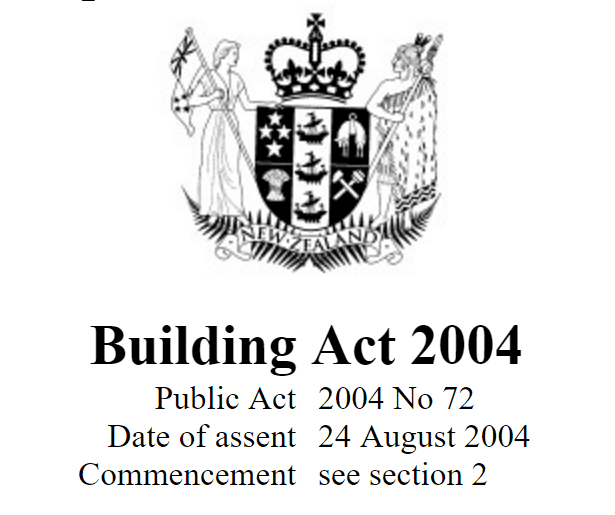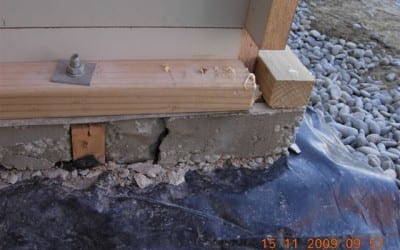The Building Act 2004 imposes a number of “implied warranty” obligations on builders. This means builders automatically provide these warranties to their clients when doing any residential building work, regardless of what it says in your contract. If you breach these warranties the homeowner can:
- Order you to fix the work
- Cancel your contract
- Arrange another person to fix the work and demand that you reimburse them
- Take you to court and ask for compensation
These warranties apply for up to 10 years and cover all jobs, whether they’re for $1,000 or $1,000,000. In addition, there is a 12 month defect period during which you must put right, within a reasonable time, any defective work (or product) notified to you in writing. If you disagree it is your responsibility to prove that the defect is not your fault.
According to MBIE the implied warranties are:
- All building work will be done properly, competently and according to the plans and specifications in your approved consent.
- All the materials used will be suitable and, unless otherwise stated in the contract, new.
- The building work will be consistent with the Building Act and the Building Code.
- The building work will be carried out with reasonable care and skill, and completed within the time specified or a reasonable time if no time is stated.
- The home will be suitable for occupation at the end of the work.
- If the contract states any particular outcome and the homeowner relies on the skill and judgement of the contractor to achieve it, the building work and the materials will be fit for purpose and be of a nature and quality suitable to achieve that result.
MBIE also use an example:
“For example, if your builder substitutes lower-quality wallboard than specified in the building plans without having your agreement, and this causes damage to the property, this breaches your written or verbal contract.”
But what if it’s the materials specified by the owner or architect that cause damage? Is the builder responsible for these?
One of the most common questions we get from builders is:
“What’s my liability for materials that have been specified but turn out to be defective, even though I’ve installed them correctly?”
Unfortunately, the simple answer is that the Building Act says the builder is responsible for using materials that are “suitable” and “will be fit for purpose”.
So, what are your options?
Relying on product warranties
Good suppliers and reputable manufacturers will back their products and support their customers if there is a problem. However, often their liability is limited in the terms and conditions you’ve signed when opening an account, or by the product’s warranty itself. Most commonly their liability is limited to the cost of the materials, leaving the builder with the often substantial associated cost of having to remove the faulty product and re-install the new. They will also often stipulate that their products must be installed in accordance with their guidelines, and if you haven’t done it correctly this may void the warranty and they may refuse to help.
Product warranties are voluntary and what they cover is at the discretion of the manufacturer. They are separate from the B2 durability requirements of the Building Code. And if the manufacturer has gone into liquidation, or you’re dealing with a small supplier of imported products, then you may struggle to get any help.
- If you can, deal with suppliers and products that you know and trust.
- If you’re being required to use a product you don’t know make sure you spend some time investigating it and the manufacturer. What does their warranty say? Are they likely to stand behind it? Can it be substituted for something you do trust?
- If you’re being required to use products you have no confidence in, can they be substituted? If not, you need to decide if it’s really worth doing the job.
10 Year Guarantees
If there’s a problem and you’ve provided your customer with an independently-insured 10 year guarantee they may, depending on its terms, be able to make a claim under that guarantee rather than enforcing the implied warranties directly on you. And if the guarantee included a “waiver of subrogation” then, depending on when it happened, the insurer won’t recover their costs from you (although they could seek to do so against subcontractors and suppliers). A number of guarantee providers, including Builtin’s Homefirst Builders Guarantee, now include this waiver of subrogation. A separate Guarantee, which includes defects cover for 10 years, must be applied for on each project. A single premium paid at the start covers the full 10 year period.
Errors & Omissions Indemnity (E&O) Insurance
Construction industry professionals, including engineers, architects, designers and surveyors will have professional indemnity insurance that covers their liability if they make a mistake in the course of their work. Builders can also benefit from this cover, called Errors & Omissions Indemnity. If you’re held liable for an act, error or omission that results in a financial loss to another party then E&O cover can protect you. This cover will not protect you if the products you’ve installed have failed to meet their manufacturer’s specification, but may do so if the loss is related to improper installation, perhaps by a subcontractor. E&O cover must be renewed continuously, so that the policy is current both when the loss occurred and when a claim is made.
A recent court ruling
The Supreme Court has recently ruled that the Ministry of Education’s case against Carter Holt Harvey Limited (CHH) can proceed to trial. The Ministry alleges that weathertightness issues affecting a large number of school buildings is the result of defective cladding sheets and cladding systems supplied by CHH. They are claiming negligence on the part of CHH. The Court also ruled that the 10 year longstop limitation provisions of the Building Act don’t apply to claims related to defective building products and materials, which are not “building work” for the purposes of the 10 year limitation period.
If the Ministry’s case is successful it demonstrates that building owners may be able to seek compensation directly from the manufacturer of defective products supplied by their builder, although this would not diminish the builder’s own liability under the Act.
In a nutshell
Builders bear a lot of responsibility, and liability, including for the materials you supply. Unlike builders, product manufacturers are under no obligation to provide warranties, but are still responsible under the durability requirements of Clause B2 of the Building Code. As much as possible you need to work with products, suppliers and manufacturers you trust, and be aware of the limitations within their terms and conditions and warranties. Consider taking out a 10 year independently-insured guarantee on every project so that you can benefit from the liability waiver in case of a claim. Errors & omissions insurance also offers another level of protection for the builder.
This article is not intended to be legal advice and you should seek advice from a professional based upon your own situation/needs.




